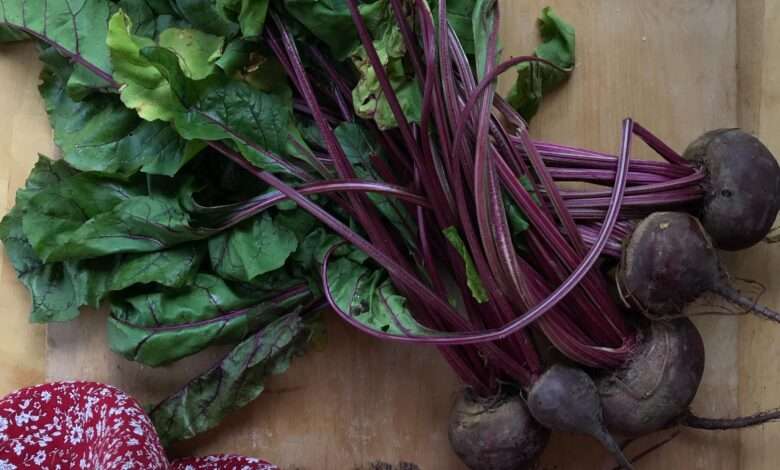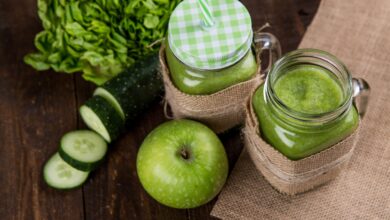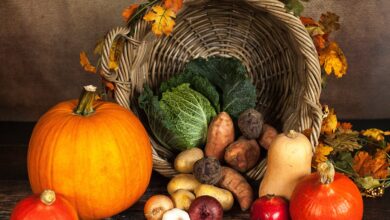
The benefits of beets
Thanks to its high content of vitamins and minerals, beets are a real ally for our health. Like all fruits and vegetables, and when consumed as part of a varied and balanced diet, it has a preventive effect on many chronic pathologies.
Reduction of the risk of cancers
A study has shown that the consumption of betanin, one of the pigments giving beets their characteristic color, reduces the appearance of skin, liver and lung cancers in animals. Additionally, research indicates that the carotenoids in beet leaves may help prevent certain cancers, including breast cancer and lung cancer.
Antioxidant power
Beets are one of the vegetables with the best antioxidant power. Antioxidants are compounds that protect cells in the body from damage caused by free radicals. The latter are very reactive molecules that would be involved in the appearance of cardiovascular diseases, certain cancers and other chronic diseases.
Eye health
According to several studies, a regular intake of lutein and zeaxanthin, carotenoids contained in beet leaves, is associated with a lower risk of macular degeneration, cataracts and retinitis pigmentosa. However, more larger studies are needed to confirm these effects.
In addition, beet leaves (raw or cooked) contain lutein and zeaxanthin, 2 antioxidant compounds from the carotenoid family. These compounds are said to have beneficial effects on certain cancers and on eye health. Indeed, they are particularly concentrated in the macula and the retina, thus protecting the eye from oxidative stress which could cause it damage.
sports performance
Some studies have shown that beetroot juice, rich in nitrates, would have beneficial effects on sports performance by reducing the cost of oxygen during continuous efforts. Consuming a dose of beetroot juice would also have beneficial effects on cardiovascular performance at altitude. Other studies have shown no effect, but it seems that some subjects respond more markedly to beetroot juice supplementation than others.
One of the rare sources of betalains
Beets are one of the few plants that contain betalains, a family of pigments that contribute to their pronounced color. These compounds have been shown to be potent antioxidants in vitro. In humans, a certain proportion of betalains would be found in the bloodstream following the consumption of beet juice. Betalains would remain stable in the gastrointestinal tract without significant loss of their antioxidant properties and their bioavailability would be high. Betalains also possess anti-inflammatory, antitumor and liver protection properties.
Phenolic compounds
Beets contain phenolic compounds, including flavonoids. These compounds provide the beet with an antioxidant power that would remain constant, even after the beet has been cooked. The skin of the beet would contain at least 3 times more phenolic compounds than the flesh. Its leaves are also very rich. A study has shown that the content of phenolic compounds in fresh beet leaf juice is the highest among several vegetables, exceeding the content of spinach and broccoli juice.
Nutritionist’s word
A few hours after eating beets, it may happen that the urine or stool takes on a reddish tint. This phenomenon would occur when the pigments of the beet (betalains) are absorbed by the intestine instead of being degraded. Several factors can influence this coloring, such as the acidity of the stomach, the speed of digestion, the variety of beet consumed, etc. This feature does not represent a health hazard.




